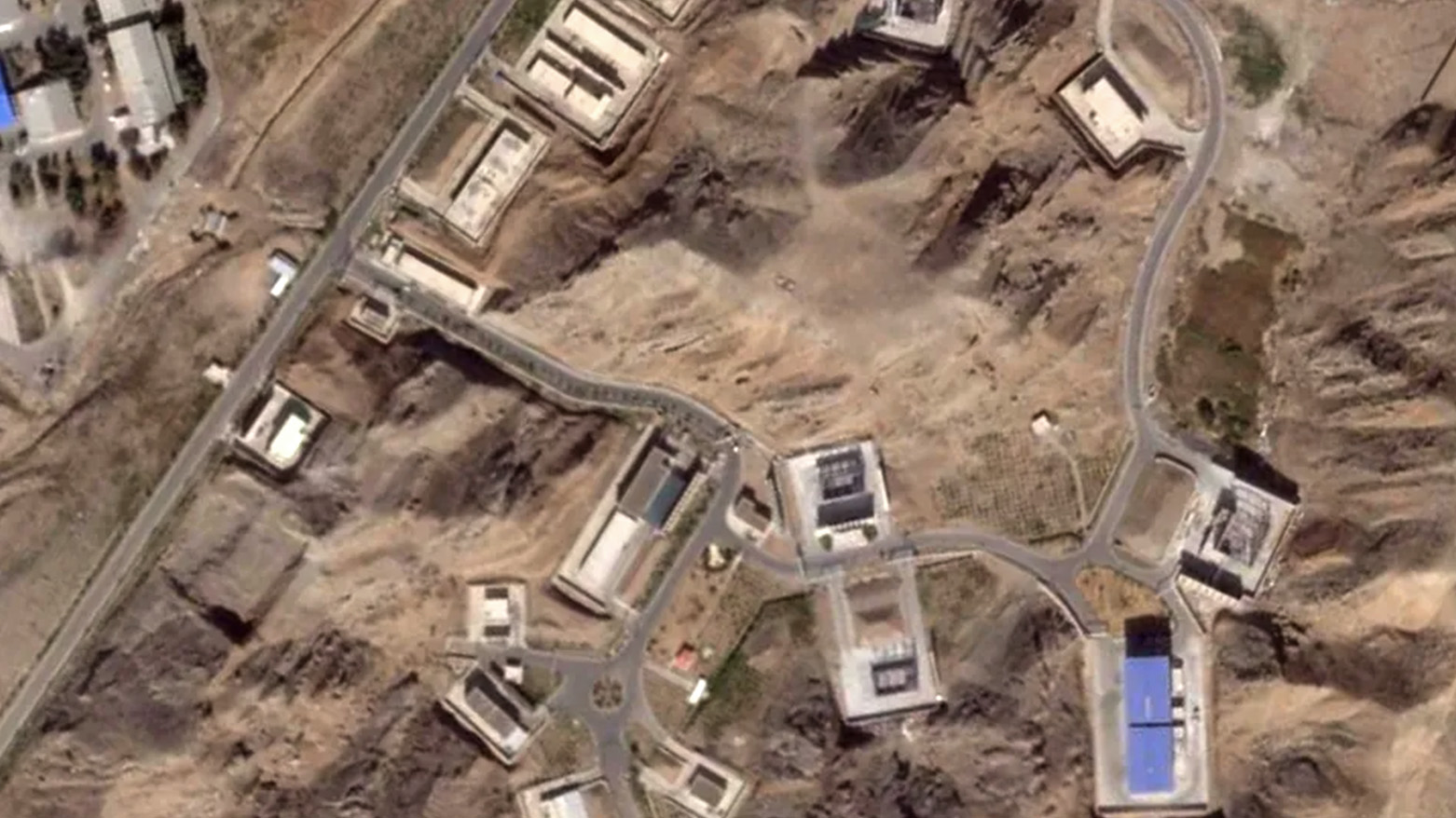Iran Rebuilding Missile Sites Hit by Israel, but Key Equipment Still Missing
Satellite images show Iran rebuilding missile sites destroyed by Israel, but key equipment for solid-fuel production remains missing, AP reports.

ERBIL (Kurdistan24) — Iran has begun reconstructing missile-production sites heavily damaged by Israeli strikes during the 12-day war in June, but experts say the Islamic Republic is still missing a crucial piece of equipment: the large planetary mixers needed to produce solid-fuel missiles, The Associated Press (AP) reported Wednesday.
Satellite imagery analyzed by AP shows repair and rebuilding underway at facilities in Parchin and Shahroud, two of Iran’s major solid-fuel missile sites. The reconstruction effort highlights Tehran’s determination to reconstitute its arsenal after Israeli strikes destroyed equipment seen as central to missile manufacturing.
Missile experts told AP that reacquiring planetary mixers remains a top priority for Iran, particularly as the country braces for the possible reimposition of United Nations sanctions later this month.
The sanctions are expected to target missile development and other military activities.
“If they’re able to reacquire some key things like planetary mixers, then that infrastructure is still there and ready to get rolling again,” Sam Lair, a research associate at the James Martin Center for Nonproliferation Studies, told AP.
Israeli Strikes and Iran’s Capabilities
During the June war, Israel specifically targeted solid-fuel missile facilities in what experts believe was an attempt to cripple Tehran’s ability to mass-produce weapons. Solid-fuel missiles, which can be launched more quickly than liquid-fuel variants, provide Iran with a critical deterrent.
According to the Washington-based Jewish Institute for National Security of America, Iran launched 574 ballistic missiles at Israel during the June conflict, in addition to 330 fired in earlier exchanges, amounting to over a third of its estimated arsenal of 2,500 missiles. Before the war, Iran had been on track to produce more than 200 solid-fuel missiles per month.
“Israel’s targeting indicates that they believed mixing was a bottleneck in Iran’s missile production,” said Carl Parkin, another researcher at the James Martin Center.
“If Iran is able to overcome their mixing limitations, it’ll have all the casting capacity that it needs to start producing at high volumes again.”
China’s Role
AP noted that Iran may turn to China to procure planetary mixers and missile fuel ingredients, as it has done in the past. Just days after a deadly explosion at an Iranian port in April — believed to be linked to missile fuel chemicals — the U.S. sanctioned Chinese firms accused of supplying propellant ingredients to Tehran.
Beijing has so far avoided publicly committing to assisting Iran’s missile program, but Chinese state media have emphasized support for Iran’s sovereignty and opposition to rising tensions in the Middle East.
War experts warn that Chinese assistance with mixers, guidance systems, or microprocessors could quickly restore Iran’s prewar production capacity.
“They are clearly very invested in their missile program, and I don’t think that they’re going to negotiate it away, ever,” Lair said.
Iran’s missile arsenal has long been at the heart of tensions with both Israel and the West. Tehran argues its ballistic missiles are a defensive necessity, particularly after years of sanctions and its lack of modern air defenses.
Israel, however, views Iran’s missile program as an existential threat and has consistently sought to degrade its capabilities through covert operations, cyberattacks, and airstrikes.
The June war — one of the most intense confrontations between the two rivals — left Iran’s air defenses and missile infrastructure severely damaged, while Israel touted its success in neutralizing much of Tehran’s strike capacity. Yet, as AP’s findings show, Iran is already racing to rebuild.
The looming snapback of UN sanctions, alongside closer ties between Tehran and Beijing, may further complicate international efforts to restrain Iran’s missile program.
For Israel and its Western allies, the rapid reconstruction serves as a reminder that Tehran’s ambitions remain firmly entrenched, raising the prospect of renewed conflict in a region already on edge.